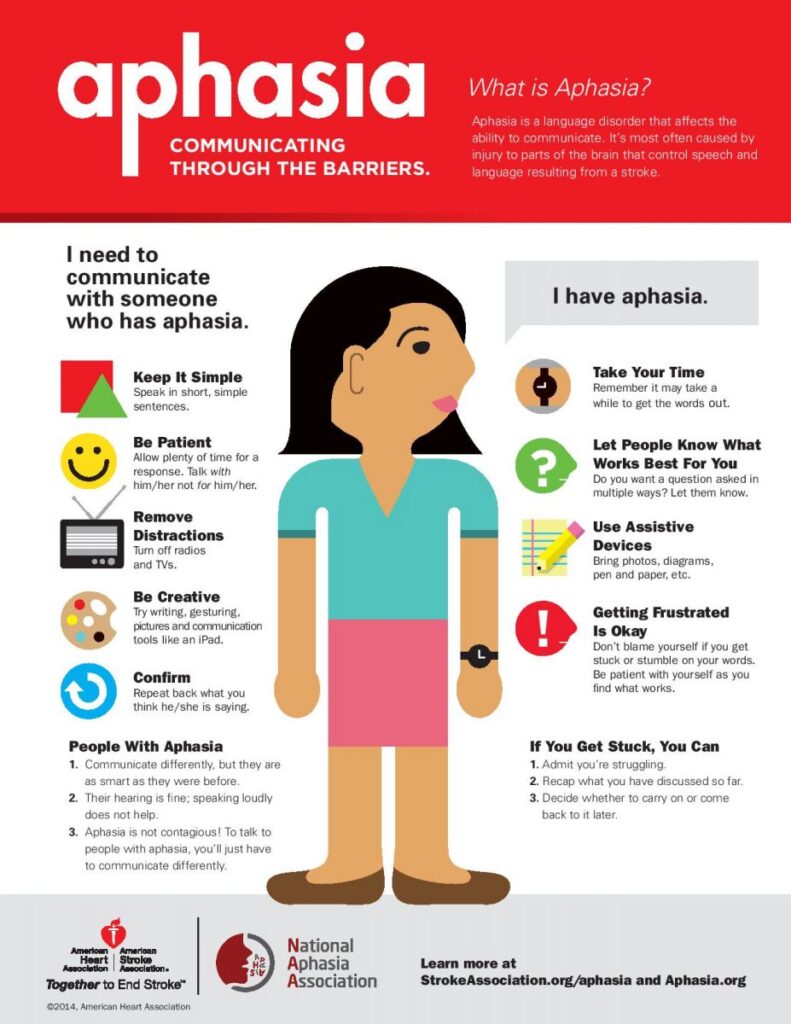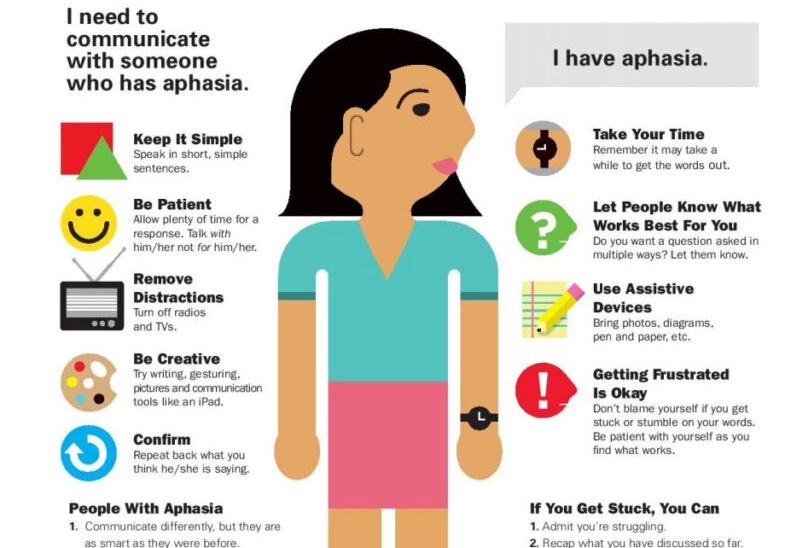Let’s talk about how June is National Aphasia Awareness Month. Aphasia is an acquired communication disorder that affects more than 2 million Americans. Aphasia is most common in older individuals, however it can occur in people of all ages and gender. Aphasia makes it difficult to talk and understand what other people are saying, whether that is through hearing language or seeing it. Aphasia does not affect intelligence.
Aphasia is primarily caused by stroke or traumatic brain injury. Each person with aphasia is affected differently. Language may be impaired with speaking, understanding what others are saying, reading, writing, gesturing, and using numbers.
Recovering with aphasia is often a lifelong process. Many people with aphasia have improved outcomes when speech therapy is provided. The brain is able to learn and form new networks, which promote healing.
Aphasia has a greater negative impact on an individuals’ quality of life than cancer or Alzheimer’s Disease according to a 2010 research study by Lam and Wodchis. This is because aphasia impairs the ability to communicate and engage in conversation with loved ones and communication partners.
Our therapist at Speech Language Planner LLC has a passion for coaching individuals with aphasia and their family members and caregivers through using communication strategies to better communicate. Therapy often includes developing a communication book using pictures, melodic intonation therapy (MIT) to produce functional phrases, and word-finding strategies. Our therapist supports multimodal therapies, which involves speech, gesture, music, drawing, and augmentative and alternative communication.
If you need to communicate with someone who has aphasia speak in short phrases and remember to keep your sentences simple. Give the person ample time to respond. Don’t try and answer for them. Reduce distractions by turning off the tv. Use gestures, drawings, writing, and pictures. Repeat back what you think the person said and have them confirm.
Sometimes people with aphasia have a low yes/no reliability. For example, they may answer yes/no with natural speech, but when you ask them to shake their head yes/no, they may respond differently. A speech-language pathologist is able to analyze what the most reliable communication method a person with aphasia has.
If you have aphasia give yourself time to get your words out. Tell people what works best for you. Use augmentative and alternative communication such as photos, assistive devices, pen and paper. Be kind to yourself and know that getting frustrated is ok.
Check out the National Aphasia Association for helpful resources and information to learn more about aphasia and how to communicate to individuals with aphasia.

Reference:
Lam, J.M.C. & Wodchis, W. P. (2010) The relationship of 60 disease diagnoses and 15 conditions to preference-based health-related quality of life in Ontario hospital-based long-term care residents. Medical Care, 48, 380-387.


 Hannah E. Abbott, MS CCC-SLP is a licensed Speech-Language Pathologist in New Mexico, Arizona, and Florida. She helps adult survivors of stroke and traumatic brain injury work on improving communication and problem-solving skills to increase their quality of life and safety awareness.
Hannah E. Abbott, MS CCC-SLP is a licensed Speech-Language Pathologist in New Mexico, Arizona, and Florida. She helps adult survivors of stroke and traumatic brain injury work on improving communication and problem-solving skills to increase their quality of life and safety awareness.